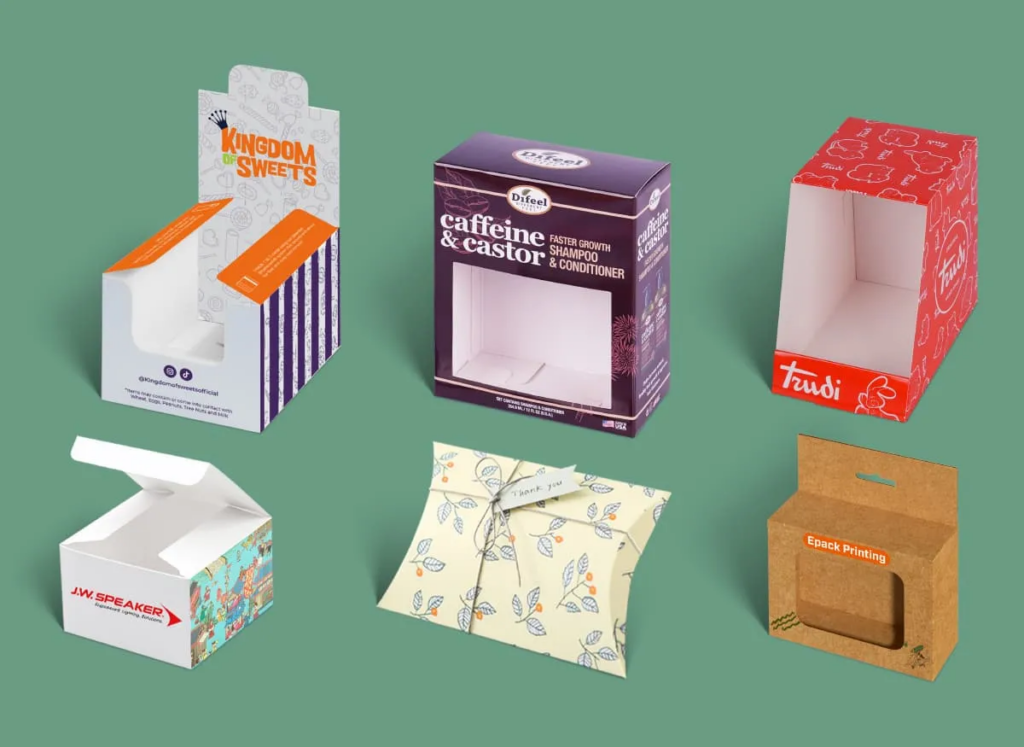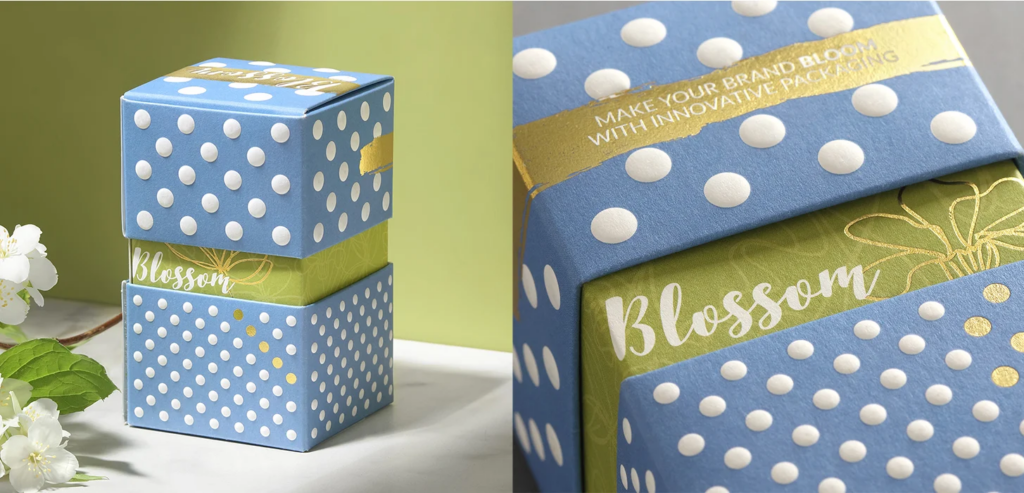The world of beauty is competitive, and packaging plays a key role in shaping consumer perception. Whether you’re launching a new product line or revamping an existing one, understanding different types of cosmetic packaging is crucial to your brand’s success. From skin care packaging to personal care packaging, the right container can protect your formula, convey your brand identity, and boost shelf appeal.
This guide will walk you through the essential types of packaging used in cosmetics and highlight the most effective containers for beauty products across various product types.
| Type | Key Features | Common Applications |
|---|---|---|
| Plastic Packaging | Lightweight, versatile, فعالة من حيث التكلفة, available in PE, ص, حيوان أليف, إلخ. | Bottles, أنابيب, jars for skincare and lotions |
| Glass Packaging | Elegant appearance, non-reactive, قابلة لإعادة التدوير, preserves product purity | Perfume bottles, serums, facial oils |
| Metal Packaging | متين, sleek look, قابلة لإعادة التدوير (often aluminum or tinplate), protects contents | Lip balms, compact powders, spray cans |
| ورق & Cardboard Packaging | صديقة للبيئة, قابلة للتحلل, قابل للتخصيص, used for outer packaging | Cosmetic boxes, إدراج, gift sets |
| Acrylic Packaging | High-end appearance like glass, impact-resistant, smooth finish | Cream jars, foundation cases, compact packaging |
| Airless Packaging | Protects formulas from air contamination, allows precise dosing | Serums, anti-aging creams, sensitive formulations |
Plastic Packaging – A Staple for Personal Care Products

Plastic is the most widely used material in cosmetic packaging supplies, thanks to its adaptability and cost-efficiency.
Common Plastic Containers:
- Tubes for creams and facial cleansers
- Pump bottles for lotions and liquid makeup
- Jars for body butters and scrubs
Why It Works:
- Lightweight and shatter-resistant
- Suitable for both personal care packaging and color cosmetics
- Easy to customize with logos and finishes
Often used for products requiring flexible, squeezable containers, like moisturizers, gels, and shampoo.
Glass Packaging – Ideal for Premium Skin Care Packaging
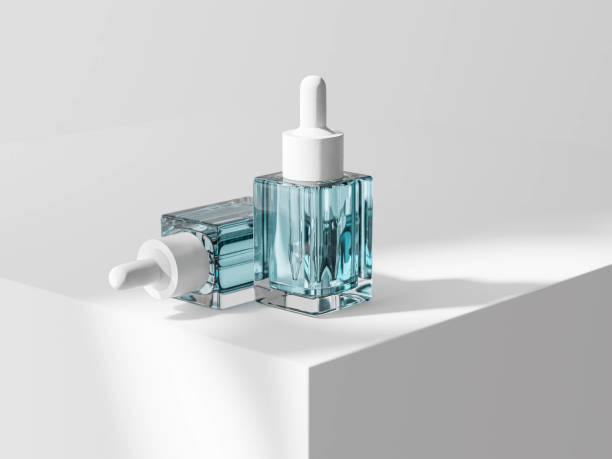
Glass is a popular choice for high-end skin care packaging due to its elegance and chemical stability.
الاستخدامات الشعبية:
- Dropper bottles for serums and face oils
- Cream jars for anti-aging moisturizers
- Perfume bottles
المزايا:
- Non-reactive and ideal for sensitive formulations
- Recyclable and مستمر
- Gives a luxury feel to your product line
Glass is widely preferred in skin care packaging where the formula’s integrity is paramount.
Metal Packaging – Sleek and Sustainable
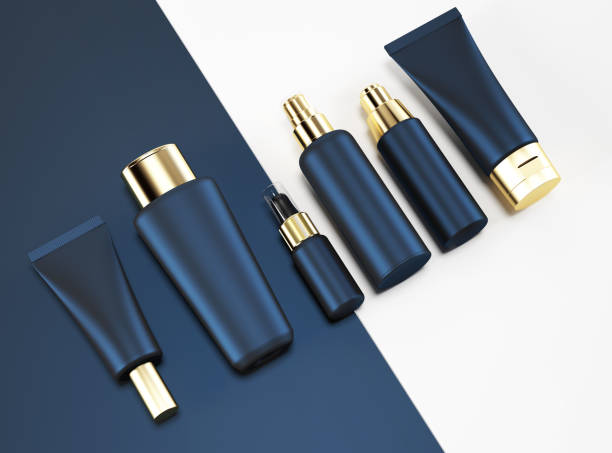
Metal containers like aluminum and tin are stylish, دائم, and great for keeping products protected from light and air.
Common Types:
- Tins for balms and salves
- Aerosol cans for sprays and mists
- Compact cases for powder products
فوائد:
- Excellent barrier protection
- Fully recyclable
- حديث, clean aesthetics
An excellent choice for cosmetic packaging supplies targeting a minimalist or sustainable image.
Paper and Cardboard Packaging – Eco-Friendly and Lightweight
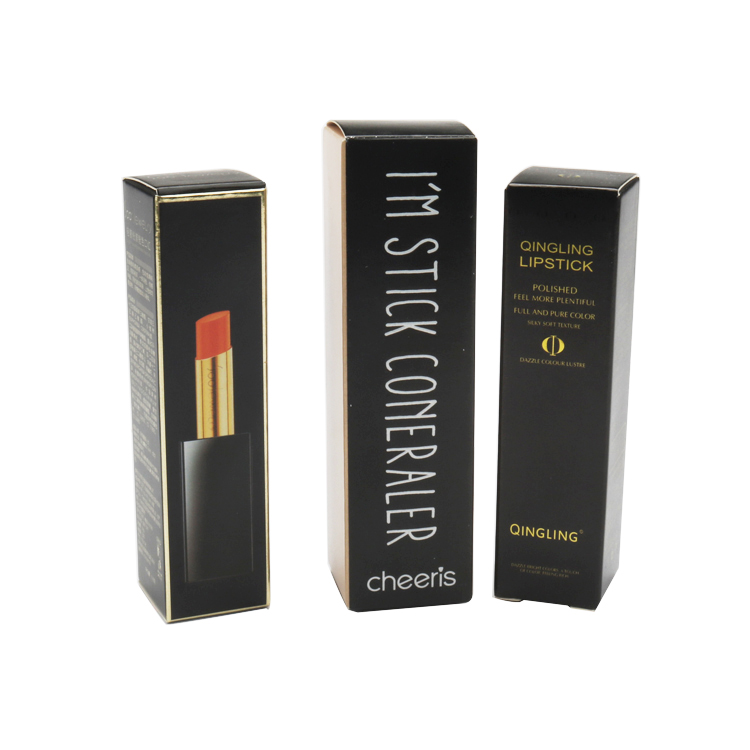
Paper-based packaging is trending in the beauty world for its environmental benefits and customizability.
التطبيقات:
- Folding cartons for outer packaging
- Rigid boxes for luxury kits
- Paper tubes for lip balms and deodorants
Key Benefits:
- Lightweight and biodegradable
- Offers excellent surface for printing and branding
- Popular for personal care packaging with eco-conscious appeal
Perfect for brands seeking plastic-free alternatives for containers for beauty products.
Acrylic Packaging – Glass-Like Beauty Without the Weight
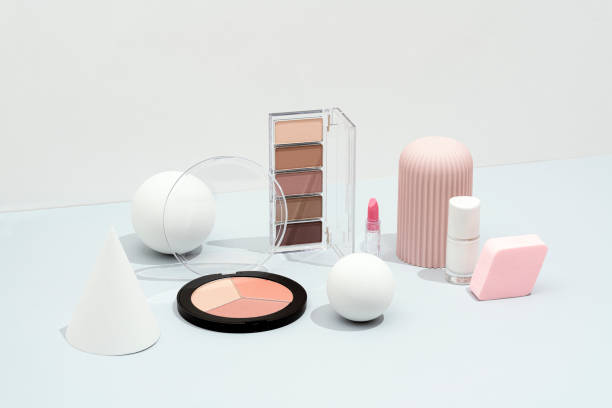
Acrylic offers the clarity of glass but with improved strength and design flexibility.
Common Uses:
- Jars for high-end creams
- Custom compacts for foundation or blush
- Bottles for prestige skincare
أبرز:
- Durable and shatterproof
- Enhances product visibility
- Often used in luxury skin care packaging
Especially suitable for cosmetic packaging supplies where aesthetics drive customer appeal.
Airless Packaging – Protection and Precision
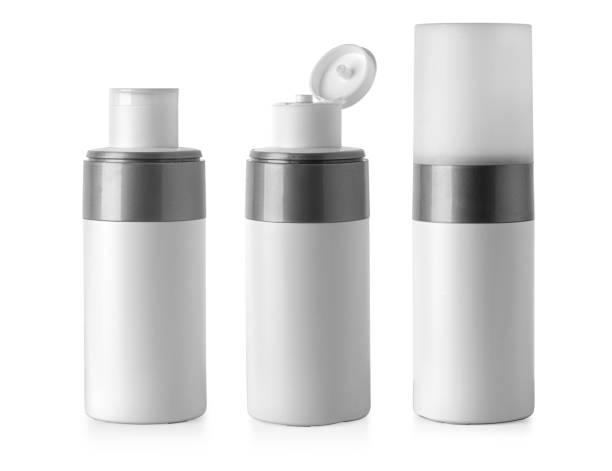
Airless packaging is designed to protect sensitive formulas from oxidation, ideal for skin care packaging and anti-aging lines.
Types:
- Airless pump bottles
- Vacuum-sealed jars
المزايا:
- Preserves active ingredients
- Ensures hygienic and precise dispensing
- Reduces product waste
A top choice for modern personal care packaging with natural or preservative-free ingredients.
FAQs About Cosmetic Packaging Materials
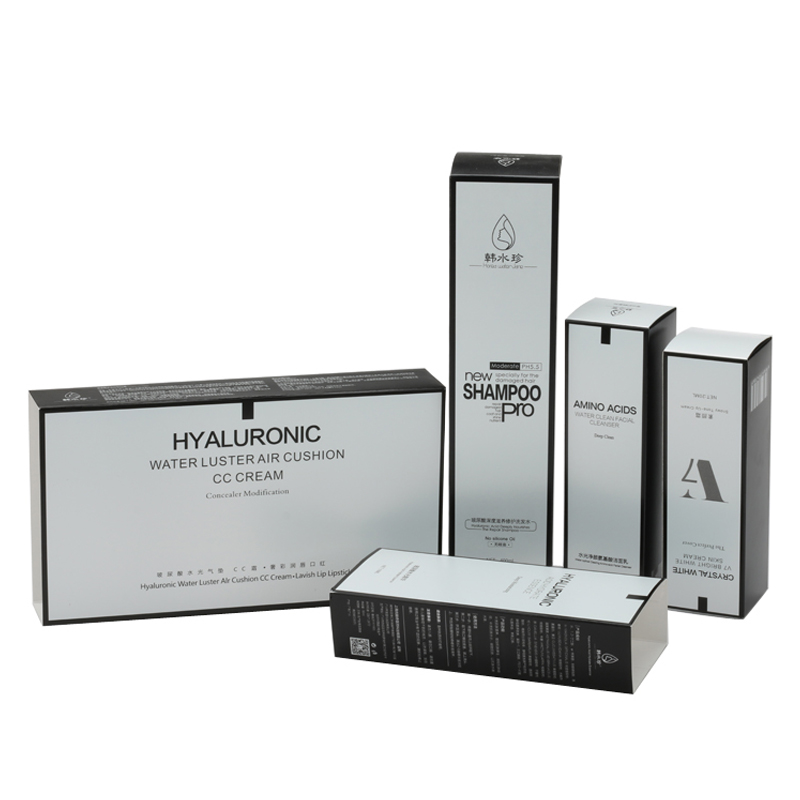
What Is the Best Material for Cosmetic Packaging?
The best material depends on the product’s formula, target market, and sustainability goals. Here’s a quick breakdown:
- Glass – Ideal for serums, oils, and luxury skincare
- Plastic – Versatile and cost-effective for everyday use
- Metal – Durable, قابلة لإعادة التدوير, and premium-looking
- الورق المقوى – Best for eco-friendly outer packaging
- Acrylic – Beautiful and strong, used in prestige makeup
For high-end skin care packaging, glass and acrylic are top choices. For mass-market personal care packaging, plastic remains dominant.
What Are the Materials Used in Skin Packaging?
“Skin packaging” in cosmetics refers to both the product container and its outer protective layer. Key materials include:
- Primary packaging (direct contact):
Glass, بلاستيك, aluminum, acrylic
- Secondary packaging (outer packaging):
الورق المقوى, الأكمام من الورق المقوى, علب الهدايا الصلبة
- Tertiary packaging (شحن):
الصناديق المموج, صناديق شحن مخصصة مع الشعار
A complete cosmetic packaging supply chain includes all three layers for full product protection and branding impact.
الأفكار النهائية
In today’s beauty industry, the packaging is just as important as the product itself. Choosing the right containers for beauty products helps you stand out, connect with your target audience, and protect your formula. Whether you’re looking for eco-friendly cosmetic packaging supplies, luxury finishes, or custom skin care packaging, knowing your options gives your brand a serious edge.


